A series of engagements involving government and civil society organisations (CSOs) has harvested contributions from the latter in the review and planned implementation of Nigeria’s Nationally Determined Contributions (NDCs).
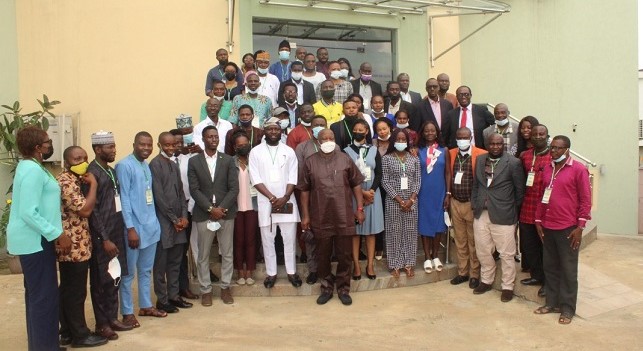
NDCs are non-binding national plans highlighting climate actions, including climate related targets for greenhouse gas emission reductions, policies and measures governments aim to implement in response to climate change and as a contribution to achieve the global targets set out in the Paris Agreement.
Nigeria’s NDC review process has involved collaboration between various private and public sector players and CSOs. Led by the Department of Climate Change in the Federal Ministry of Environment (DCC-FME) and the United Nations Development Programme (UNDP) – NDC Partnership, the coalition of civil society organisations under the auspices of National Civil Society Framework on Paris Agreement and the SDGs (NCSFPAS) coordinated by the Climate and Sustainable Development Network (CSDevNet) engaged across geo-political zones of the country and galvanised input from the grassroots and community stakeholders into the updated new NDC.
The inputs were aggregated at the National Stakeholder Engagement Workshops on Nationally Determined Contribution (NDC) Revision Process which held across the six geo-political zones of Nigeria.
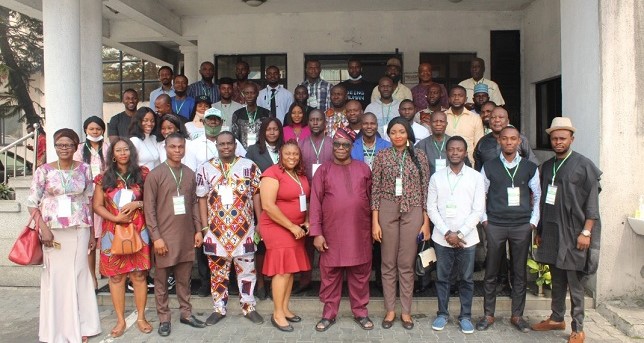
The DCC-FME hosted the kick-off workshop with support from the UNDP in Abuja on Thursday, June 17, 2021 at the North-Central Stakeholders’ Workshop. It went across the nation and was rounded up in Enugu on Thursday, August 5, 2021, at the South-East Stakeholders’ Workshop.
To meet the need to prepare relevant stakeholders on what to expect in the new NDC, the workshop provided the opportunity to inform stakeholders on what has been revised in the NDCs as well seek inputs into the document for the final validation and submission.
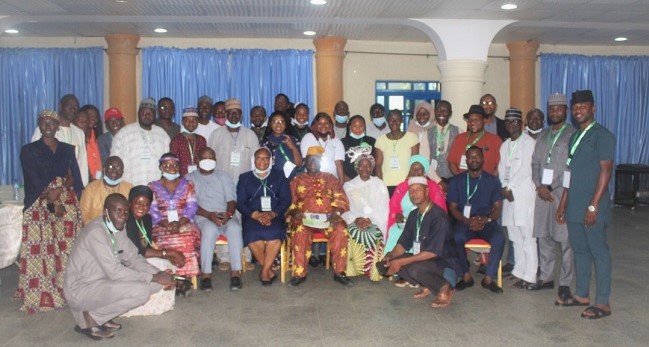
Papers were presented at the forums by Huzi Mshelia, Coordinator, United Nations Development Programme (UNDP)-NDC Support Programme; Prof. Olukayode Oladipo of the University of Lagos; Prof. Francis Adesina of the Obafemi Awolowo University, Ile-Ife; Dr. Eugene Itua of Natural Eco Capital Limited; Team Leader, Ricardo, Hans Verolme; Dr Ewa Eleri, Executive Director at International Centre for Energy, Environment & Development (ICEED); Olugbolahan Mark-George, Climate Finance Advisor, Nigeria – NDC Partnership and Nigeria Country Coordinator, PFAN; Duncan Millard, International Statistics Advisor for IRENA; Mr Emmanuel Sogein Daminabo; Dr Ahmed Sabo; and Prof. Francis Bisong.
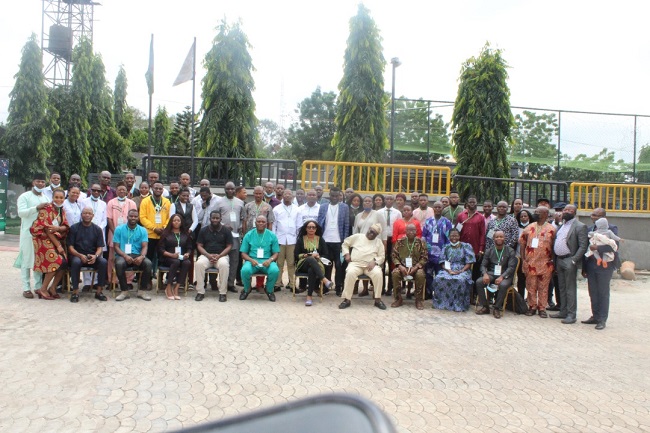
At the close of the presentations, the facilitators arrived at some conclusions, some of which are listed to include:
- Besides reviewing the draft and providing inputs at the national validation, CSOs are also expected to actively participate in the implementation of the NDC and monitor its performance.
- UNDP considers CSOs as an integral part of a successful NDC preparation and implementation.
- CSOs’ role is advocacy and should form themselves into a block and exert pressure on government. They should form platforms in line with the geopolitical zones – six platforms.
- The Long-Term Strategies (LTS) should be aligned with the NDC.
- CSOs’ observations, contributions, suggestions and opinions count, so they should be actively involved in the implementation processes of the LTS and NDC.
- The Federal Government should designate a powerful state institution to lead national efforts on clean cooking.
- Knowledge of climate change vulnerability assessment among State Government Officials and Legislators is still low, and capacity building is required to address the anomaly.
- Implementation of the NDC should include an elaborate programme of actions for capacity building including that of the Civil Society.
- Awareness Creation is key to mainstreaming NDC and so Governments should provide for it.
- It is the role of CSOs to engage with the Financial Sector and Listed Companies to enable independent review and reporting on the impact of the Financial Sector and the Listed Companies on Nigeria’s NDCs.
- Women should be involved in developing new technologies related to climate change adaptation and mitigation.
- Government through the DCC should develop a strategy for support to climate change focused NGOs and CBOs to sustain and upscale their initiatives for sustained impact.
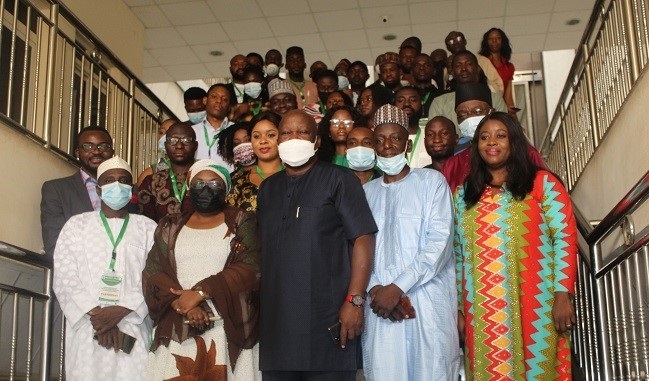
Similarly, the participating CSOs at the close of each session devised recommendations. For instance, the North-Central session suggested that:
- Role of CSOs in the NDC implementation should be clearly highlighted in the revised NDCs and not limited to just monitoring and evaluating implementations.
- A framework including entry points for full participation of CSOs in the implementation of the NDC should be developed.
- Department of Climate Change should make provision for a repository where reports of CSOs are submitted to collate individual efforts to track progress of NDC implementation.
- A climate change accountability framework development should be included in the implementation framework to be done jointly by CSOs and DCC to spell out roles and responsibilities with financial allocation and time frame.
- The NDC implementation framework should clearly propose strategies on how to enhance technical capacity of CSOs to participate fully in implementing the NDCs.
- Provision should be made to intensify physical awareness creation about the provisions in the revised NDCs and required actions to take to achieve results especially in rural communities by CSOs.
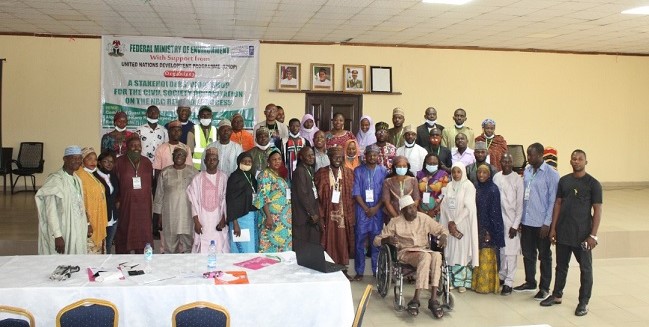
Dr. Ibrahim Choji, CSDevNet’s Board Chair, submitted that, as regards awareness advocacy and engagement, there’s need for the establishment of a permanent dialogue mechanism between national and sub-national (state and non-state actors) committed to the implementation of the NDC, with target on the local and vulnerable communities who are at the frontline of the climate crisis.
Ahead of the 26th UN Climate Change Conference of the Parties (COP26) in November in Glasgow, Nigeria on July 31, 2021, raised it climate ambition and submitted its reviewed Nationally Determined Contribution (NDC) final report of 2021 to the UN Framework Convention on Climate Change (UNFCCC).
By Michael Simire
